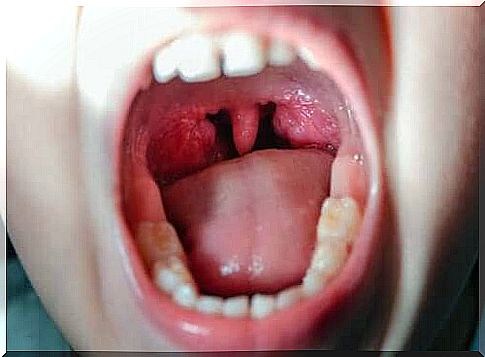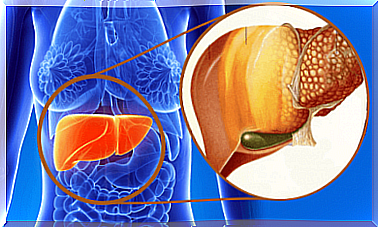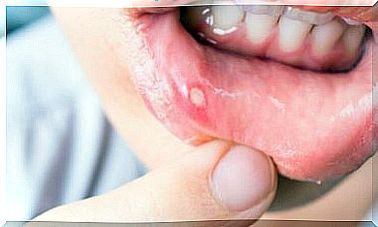Viral Pharyngitis: Diagnosis And Treatment
Viral pharyngitis is inflammation caused by a virus. It is a common infection that in most cases does not cause any complications. In addition, the symptoms only persist for a few days.

The viral pharyngitis is the most common form of the disease. In fact, between 60 and 80% of cases are viral in nature. Still, many people take antibiotics. However, this is a very bad practice because antibiotics only work against bacterial diseases.
Pharyngitis is usually more common during the cold winter months. Since it is a contagious disease, the best prevention is to avoid contact with people who are already sick.
What is viral pharyngitis?
As viral pharyngitis is called caused by a viral infection inflammation of the throat. The pharynx is a tubular structure that connects the oral cavity with the larynx and esophagus. It is located in the throat and measures about 15 centimeters in adults.
Be aware that the pharynx can become inflamed for a number of reasons. Sometimes the inflammation is caused by a bacterial infection or because a fungus is present. In addition , pathogens are absent in up to 30% of cases.
As a result, viral pharyngitis is only caused by a virus. The course of this disease depends on the type of virus and the treatment of the pathology. Complications only occur in rare cases.

The causes of viral pharyngitis
Viral pharyngitis is usually associated with a viral infection. In other words, it is one of the symptoms of another infectious disease. When this inflammation manifests itself in the absence of any other pathology, it is called nonspecific viral pharyngitis.
This disease develops gradually and causes little damage if there is no other pathology behind it. In addition, it will subside in two or three days. However, when pharyngitis is accompanied by another infectious disease, the viruses and related diseases are usually :
- Adenovirus, enterovirus, and rhinovirus all lead to colds and pharyngitis.
- The influenza virus causes influenza and sometimes pharyngitis.
- The main pathology in this case is the herpes simplex virus (HSV).
- Epstein-Barr virus, the infectious mononucleosis virus.
- HIV causes acute retroviral syndrome, which is usually accompanied by pharyngitis.
Symptoms of this disorder
The characteristic symptom of this disease is a sore throat. In addition, there are other manifestations that can occur more or less intensely depending on the person. Usually these are the following symptoms:
- A dry throat
- Pain when swallowing food or even when swallowing saliva
- Tonsillitis or tonsillitis
- Fever, but not higher than 38 ° C
- a headache
- Swollen lymph nodes on the neck
- fatigue
Symptoms can vary depending on the type of virus causing the disease. In acute viral pharyngitis, the throat is red and covered with mucus. In chronic cases, the patient’s mucous membrane is pale, thin, and covered in thick mucus.
Generally , the diagnosis is clinical and based on a patient’s medical history and physical examination. Additionally, a doctor will order various tests, such as a rapid strep antigen test, to rule out bacterial pharyngitis in some cases.

How can you treat viral pharyngitis?
There is no specific treatment for viral pharyngitis. Still, some home remedies, such as gargling warm salt water, are often very effective in these cases. Dilute a little salt in a glass of warm water and gargle it three times a day.
Drinking lots of water is also very helpful. Because it cools your throat, which in turn helps the body fight the virus. You should also eat simple and light foods, rest and avoid irritants such as tobacco and spicy foods.
If you have viral pharyngitis, you shouldn’t take antibiotics. Because in this case these are not effective at all. On the contrary, they strengthen the bacteria and make them resistant to these drugs.
Complications rarely occur with pharyngitis. Still, there is evidence that pharyngotonsillitis has become more aggressive in recent years. This is a form of pharyngitis that affects the tonsils and is also caused by a virus 80% of the time.









